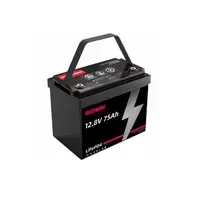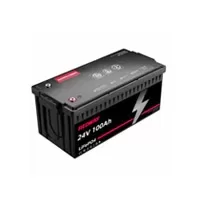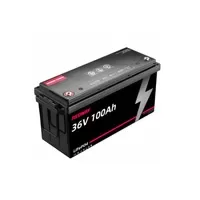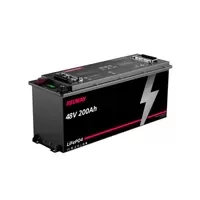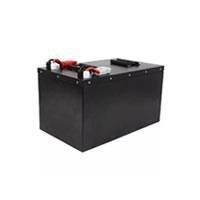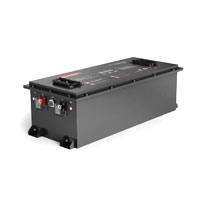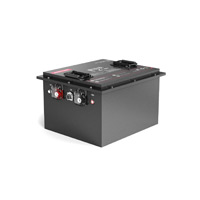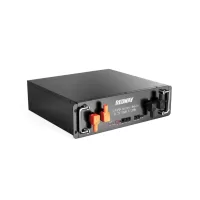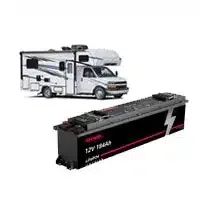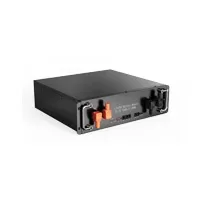When it comes to powering electric golf carts, selecting the right battery voltage and configuration is paramount for optimal performance and efficiency. Golf carts, being versatile vehicles used for transportation on golf courses, residential communities, and recreational areas, rely on batteries to power their electric motors. Three commonly used voltage options for golf cart batteries are 6-volt, 8-volt, 36-volt, and 48-volt configurations. Each voltage configuration offers distinct advantages and considerations that influence their suitability for different golf cart applications. (Check: Buy LiFePO4 Golf Cart Batteries from China Manufacturer)

6-Volt Golf Cart Batteries:
Golf carts equipped with 6-volt batteries are a classic choice, providing a reliable power source for many standard electric golf carts. With a nominal voltage of 6 volts per battery, these batteries are often connected in series to achieve higher voltages such as 36 or 48 volts. Despite a lower individual voltage, 6-volt batteries can deliver consistent power and are a cost-effective option for golf cart owners seeking a balance between performance and affordability.
8-Volt Golf Cart Batteries:
8-volt golf cart batteries offer a slight increase in voltage compared to 6-volt batteries, resulting in improved performance and efficiency. With 8 volts per battery, these batteries are connected in series to create a total voltage of 32 or 48 volts, commonly utilized in golf carts. Golf carts powered by 8-volt batteries often experience enhanced acceleration and range, making them a popular choice for those seeking a balance of power and longevity.
36-Volt Golf Cart Batteries:
Golf carts operating on a 36-volt system utilize batteries, typically six 6-volt batteries connected in series, to achieve the desired voltage. This configuration is known for providing adequate power for recreational use and moderate inclines on golf courses. Golf carts with a 36-volt system strike a balance between power and affordability, making them a common choice for both golf course transportation and personal use.
48-Volt Golf Cart Batteries:
Golf carts utilizing a 48-volt battery system consist of six 8-volt batteries connected in series, resulting in a higher voltage and enhanced power output. The 48-volt configuration offers superior acceleration and performance, making it ideal for demanding applications, including hilly terrains and heavier loads. Golf carts powered by 48-volt batteries often provide an exhilarating driving experience with increased range, making them a top choice for those seeking exceptional performance.
6V vs 8V vs 36V vs 48V Golf Cart Batteries
Here’s a comparison chart outlining the differences between 6-volt, 8-volt, 36-volt, and 48-volt golf cart batteries based on various aspects. The comparison covers voltage, capacity, battery configuration, space and weight considerations, performance, and cost.

Explanation:
- Voltage: 6-volt batteries operate at a nominal voltage of 6 volts per battery, 8-volt batteries operate at a nominal voltage of 8 volts per battery, resulting in different overall voltages for the golf cart based on the number of batteries connected in series.
- Typical Usage Voltage (in series): Golf carts typically use multiple batteries connected in series to achieve the desired total voltage for the cart. For example, a 36-volt golf cart may use 6 six-volt batteries in series, a 48-volt golf cart may use 6 eight-volt batteries in series.
- Capacity: 6-volt batteries have a lower capacity per battery compared to 8-volt batteries. However, 36-volt and 48-volt batteries have higher capacity per battery, with 48-volt batteries having the highest capacity.
- Battery Configuration: The number of batteries and how they are connected (in series) varies for each type to achieve the desired total voltage for the golf cart.
- Space and Weight: 6-volt and 36-volt batteries are larger and heavier, while 8-volt and 48-volt batteries are smaller and lighter. This can be a consideration for golf carts with limited space or weight capacity.
- Performance: Golf carts powered by higher voltage batteries (e.g., 48 volts) have faster acceleration due to the higher individual voltage of each battery.
- Availability and Cost: 6-volt batteries are widely available and often less expensive compared to 8-volt batteries. 36-volt batteries are widely available, and 48-volt batteries may be more expensive due to the higher voltage and capacity.
Conclusion
Understanding the nuances and advantages of each golf cart battery voltage configuration is crucial for golf cart owners to make informed decisions based on their specific needs, budget, and intended use. Whether prioritizing cost-efficiency, power, or a balance of both, the right battery choice can significantly impact the overall performance and satisfaction of using an electric golf cart. (Also check: Redway Lithium Golf Cart Batteries vs Trojan Lead-Acid Golf Cart Batteries)
Related Posts
- Why 48 Volt Lithium Golf Cart Batteries are a Game-Changer
- Upgrade Your Ride: 36 Volt Lithium Battery for Golf Cart
- Top Picks: Best 48V Lithium Golf Cart Battery
- Top 5 Golf Cart Lithium Battery Buying Tips
- Top 10 Solid State Battery Companies 2023
- The Ultimate Guide to Golf Cart Batteries: Tips, Types, and Maintenance


